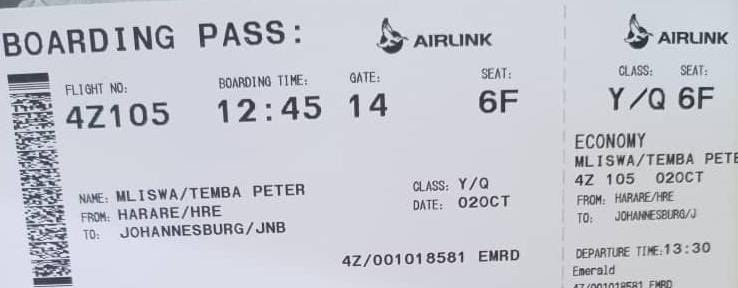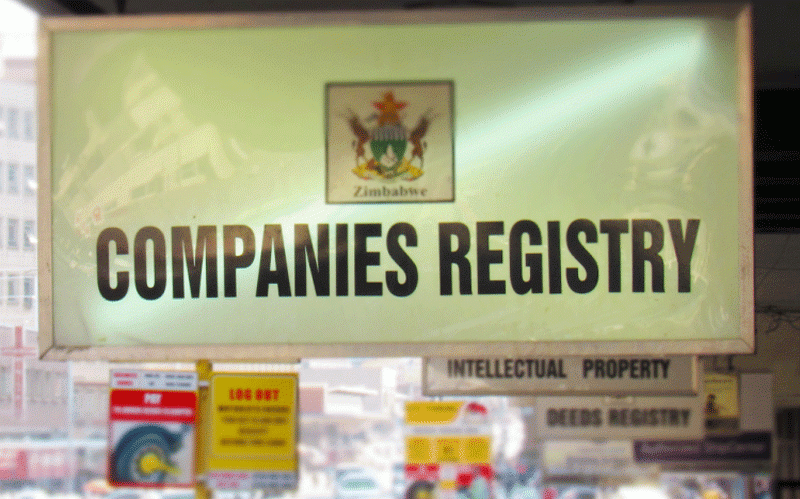The Zimbabwe Stock Exchange is fast becoming an ideal platform for facilitating the indigenisation of foreign-owned firms in compliance with the Government policy to transfer 51 percent equity of such firms to locals.
In a survey conducted by the Business Council of Zimbabwe the proportion of manufacturing firms listed on the Zimbabwe Stock Exchange chaired by indigenous persons increased from 49 percent in 2003 to 75 percent in 2010.
The proportion of listed manufacturing firms with indigenous people as either chief executive officers or managing directors increased from 38 percent in 2003 to 61 percent in 2010.
In 2003, indigenous people occupied 42 percent of the board positions in listed companies and this increased to 68 percent by 2010.
According to a research conducted by J. Chipika and J. Malaba on Indigenisation and Economic Empowerment in Zimbabwe the ownership structure of Zimbabwe's manufacturing sector has largely been shaped by its origin and evolution.
The report highlighted that in the pre-independence period the manufacturing sector has largely been owned, managed and operated by skilled personnel from either the settler white community or else owned by foreign capital interest (Riddell, 1988).
The research went further to examine distribution of ownership and control of the economy by shareholding and directorships between the period 2003 and 2010.
The survey categorized the shareholding structures of a substantial number of manufacturing firms (both listed and unlisted) according to nationality. Unlike in the case of listed companies the survey showed that for the manufacturing firms that are not listed on the stock exchange are dominantly owned by foreign investors.
About 51 percent of the equity capital in 72.5 percent (or 29 firms out of 40) unlisted manufacturing enterprises is held by foreign investors, with domestic investors holding majority equity in the remaining 27.5 percent of the enterprises as shown in Fig 1 above The implication of this survey is that the Zimbabwe Stock Exchange is a better platform for facilitating efficient and transparent market-based localization of firms' equity. Equity transfer processes are carried out in a non-disruptive manner and investors get true value of what their shares are worth.
According to the Ministry of Youth, Development, Indigenisation and Empowerment, 319 manufacturing industry companies placed their submissions in line with the requirements of the indigenisation law. Of these applications, 48 percent were approved and 51 percent were not.
The incoming Government has stated that there are 374 foreign-owned companies and the total value of the companies is $1,5 billion and the 51 percent value is $746 million. This is the capital expected to be gained from the implementation of the policy in this sector.
The Business Council of Zimbabwe report on the Indigenisation and economic empowerment has recommended an ideal Indigenisation and economic empowerment approach that strikes a fine balance between the reintegration of majority population into the manufacturing enclave, the resuscitation of the country's productive base and attracting foreign direct investment.
The report emphasised that such an approach will enable an accelerated and sustained full-utilisation of installed capacity; investment in capacity enhancing - technology, reintegration of the informal manufacturing industry into the mainstream economy and growth in the manufacturing SMEs.
- herald
 Mliswa flees to South Africa?
Mliswa flees to South Africa?  South African ambassador falls to death from Paris hotel room
South African ambassador falls to death from Paris hotel room  India dumps US Treasury bills
India dumps US Treasury bills  ZSE and VFEX recover after weak 1st half
ZSE and VFEX recover after weak 1st half  Gold edges up as traders await guidance
Gold edges up as traders await guidance  Zimbabwe gold prices move to 118.26 per gram
Zimbabwe gold prices move to 118.26 per gram  Young Investment Professional (YIP) Graduate Programme 2019
Young Investment Professional (YIP) Graduate Programme 2019 








 Young Investment Professional (YIP) Graduate Programme 2019
Young Investment Professional (YIP) Graduate Programme 2019
Editor's Pick